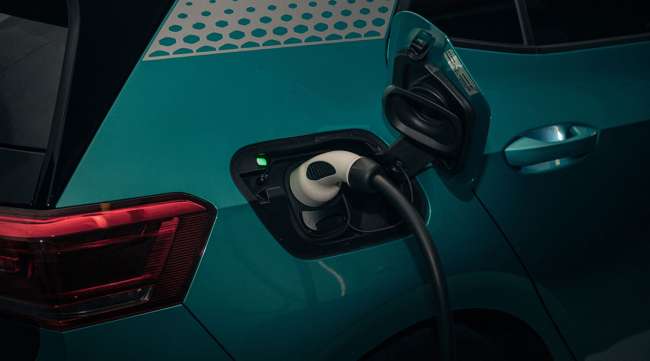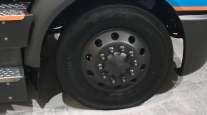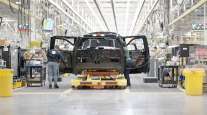Bloomberg News
VW Sees Positive Results for Potential Breakthrough Battery

[Stay on top of transportation news: Get TTNews in your inbox.]
Volkswagen AG said its battery startup has seen promising results with solid-state cells for electric vehicles, a win for the German carmaker as it pushes to make EVs more efficient and less expensive.
A solid-state prototype from VW’s U.S. partner, QuantumScape Corp., “significantly exceeded” industry targets in recent tests, the carmaker said Jan. 3 in a statement. During tests by VW’s battery unit PowerCo over several months, the cell saw only 5% storage capacity loss after more than 1,000 charging cycles, the equivalent of 500,000 kilometers on the road. VW said industry targets for this development phase are 700 charging cycles and a maximum loss of 20% capacity.
“These are very encouraging results,” PowerCo head Frank Blome was quoted as saying. “The final result of this development could be a battery cell that enables long ranges, can be charged super quickly and practically does not age.”
QuantumScape wants to bring the cell to market “as quickly as possible,” founder and CEO Jagdeep Singh said. But scaling up production of automotive-grade batteries has proven tricky and has led the company to put more emphasis on batteries for consumer electronics in its investor letters.
EV and battery makers are racing to commercialize new technologies, including next-generation anodes and sodium-ion and solid-state batteries, to power EVs more cheaply and efficiently. Toyota has partnered with oil refiner and petrochemicals company Idemitsu Kosan Co. to commercialize solid-state batteries as soon as 2027, while Chinese EV maker BYD Co.’s subsidiary is building a sodium-ion battery facility as part of a joint venture in eastern China.
Want more news? Listen to today's daily briefing above or go here for more info
Solid-state batteries replace the conventional liquid electrolyte and the separator, which are both flammable, with a solid separator made of ceramic, glass or polymers. This innovation, if proven to work beyond the lab and reproduced flawlessly hundreds of thousands of times in a factory, could make EV batteries safer, smaller and faster-charging.
The results of the test, carried out at PowerCo labs in Germany, were first revealed by QuantumScape during the company’s third-quarter earnings call in October. The battery startup didn’t mention Volkswagen, its customer and largest shareholder, during the call.




